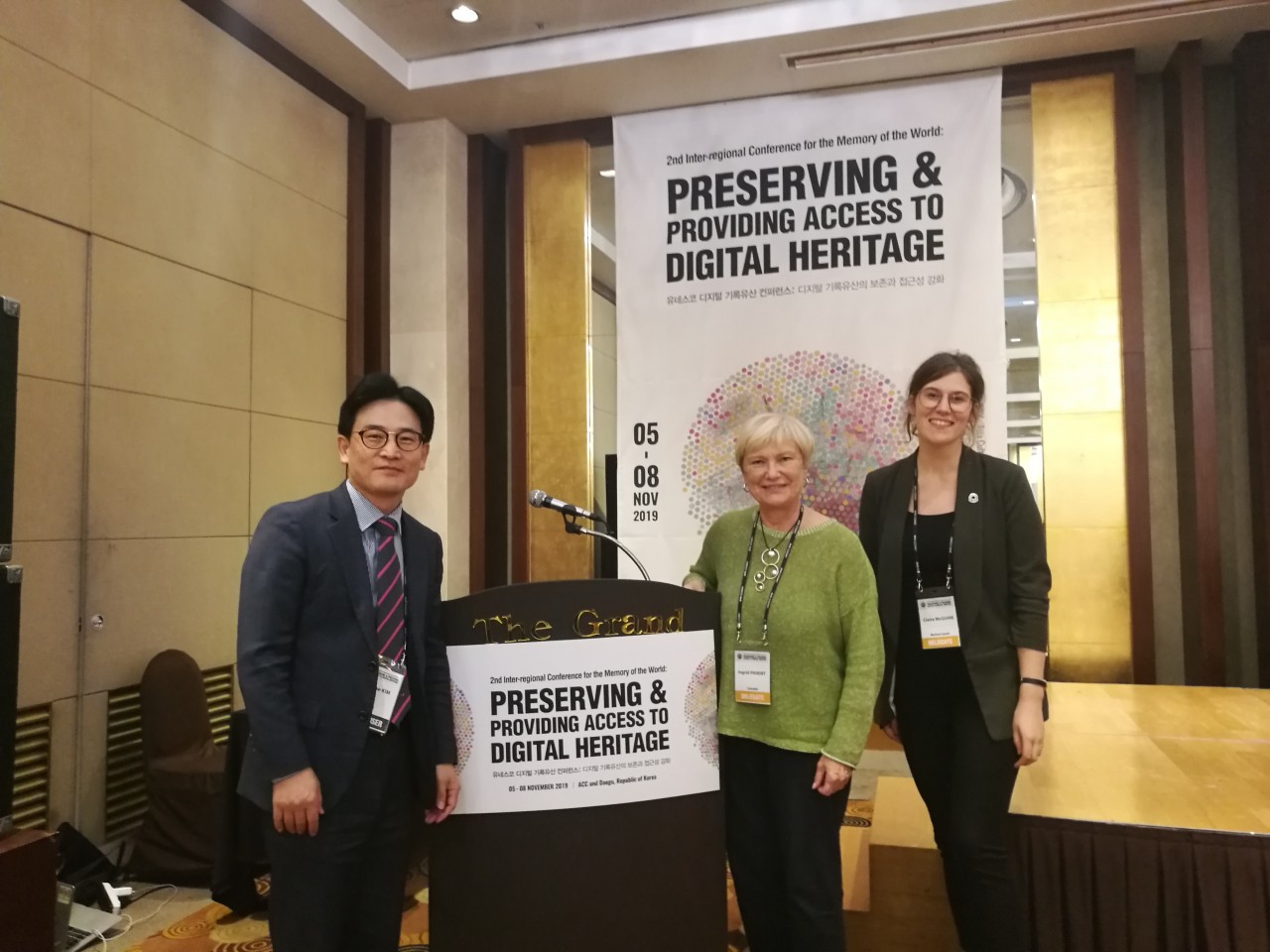IFLA Joins the Discussion on Preserving and Providing Access to Digital Heritage
12 November 2019

Representatives from IFLA participated in the 2nd Inter-regional Conference for the Memory of the World, held in the Republic of Korea on 5-8 November 2019.
The aim of the conference was to bring together experts from the UNESCO Memory of the World Committees from Asia-Pacific, Africa and Latin America and the Caribbean, together with other stakeholders, experts and practitioners in the field, to discuss strategies and initiatives for the preservation of, and access to, digital heritage.
Among the central challenges being discussed was the question of how data is being saved, how old data can survive in the face of obsolescence, and the opportunities for access and sharing that advances in digital technology present.
Presentations by IFLA
IFLA was heavily involved in this project, which seeks to provide guidance to museums, archives and libraries when deciding what should be selected for long-term digital preservation.
Claire McGuire, IFLA Policy and Research Officer introduced IFLA’s Guidelines for Setting Up a Digital Unification Project. The guidelines fit very well with the theme of international cooperation and knowledge sharing that was central to this conference.
Digital Unification goes one step beyond preservation, using technology to bring collections together across borders, and provide context for a deeper understanding of shared histories.
Over the three-day conference, 60 people from 23 countries shared perspectives, and heard introductions to guidelines, tools, and case studies from 13 countries.
We determined next-steps and opportunities, including strengthening the implementation of the 2015 Recommendation Concerning the Preservation of, and Access to, Documentary Heritage, including in Digital Form.
Next steps that IFLA can contribute to include:
- Welcoming translations and reviews/further contributions to the Guidelines on Selection of Digital Heritage and on Digital Unification
- Promoting the use of Guidelines in our members’ institutions and countries
- Supporting training to help build capacity
- Continuing to develop strategic partnerships at the international level
- Promoting open knowledge and information sharing with the global library field
- Supporting the movement from project-based digitisation/preservation initiatives to long-term preservation policies
- Promoting inclusive and accessible solutions for navigating digital collections